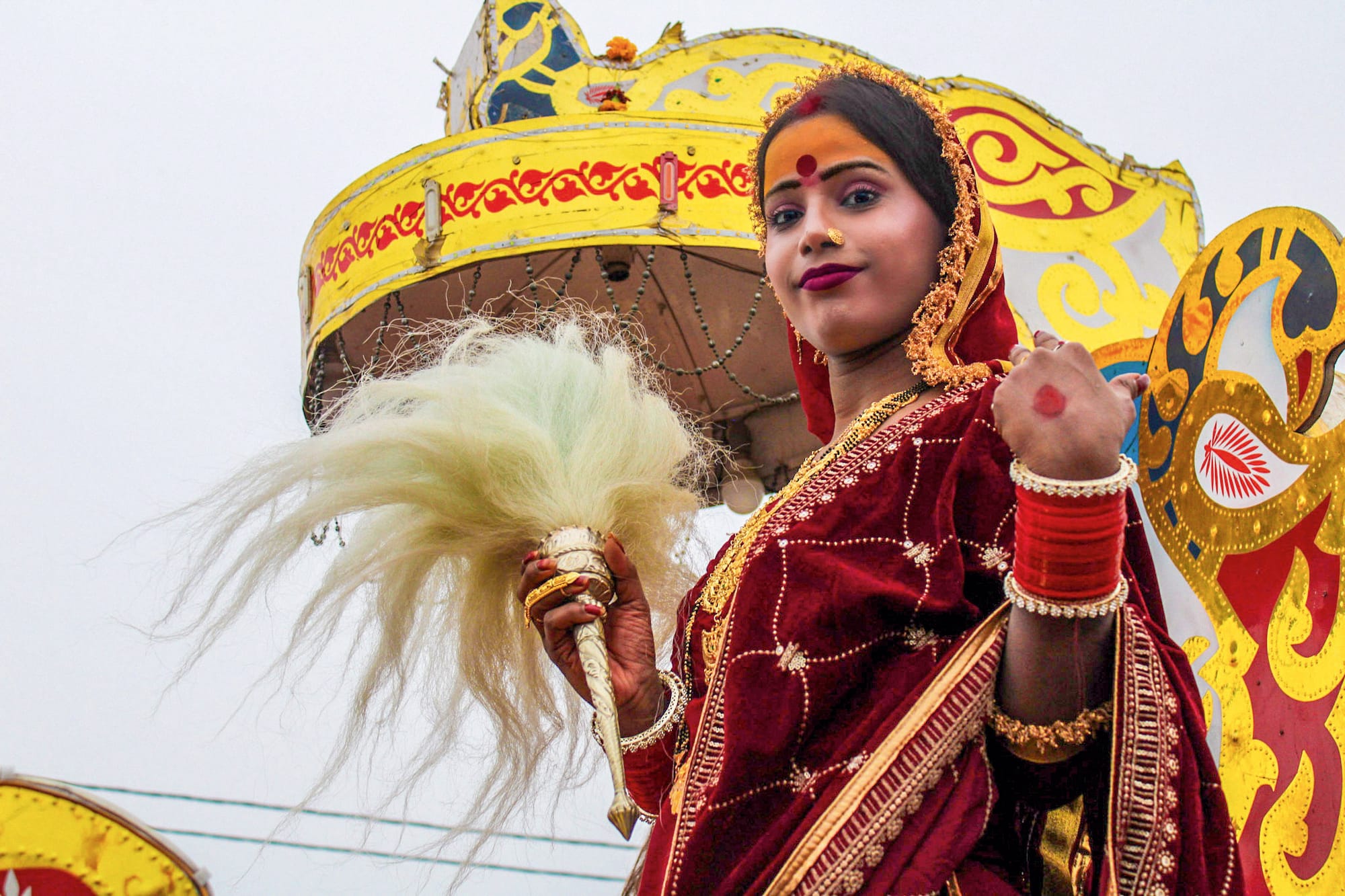Transgender acceptance at India's largest spiritual gathering

‘It wasn’t always like this,’ recalls Rishikesh Nandgiri, a member of Indian transgender spiritual group Kinnar Akhara, as worshippers line up for their blessings. Once excluded from the Kumbh Mela, India’s biggest Hindu festival, Nandgiri and other trans people now stand at its centre.
The Mela, held once every 12 years, is a meeting ground for religious leaders to share their spiritual teachings, and draws millions of devotees to bathe in the holy rivers. The 2025 Mela, held in the northern city of Prayagraj, was struck by tragedy on 29 January when a crowd surge turned fatal, killing at least 30. At the time of writing, little is known about what led to the crush. No members of Kinnar Akhara were harmed in the incident.
Fund journalism that sparks change.
Donate now!Shunned by mainstream religious spaces and excluded from rituals and festivals for centuries, this year is the first time in history that transgender spiritual leaders are taking part in the festival, after Kinnar Akhara was officially recognized as part of the Hindu monastic order in 2019.
Despite this milestone, Rishikesh explains to New Internationalist that the fight for acceptance is far from over: ‘At Kumbh Mela, we are treated as gods, but outside, our reality is very different. We are still fighting for equal rights.’
Although the past decade has seen progress for transgender communities in India, with the supreme court granting legal recognition to a third gender in 2015, this has not yet translated into widespread acceptance or opportunities. Many transgender people in India still face barriers to education, employment and healthcare, and are often forced into begging or sex work to survive. There is more work to be done, says Rishikesh: ‘My dream is to see a school where Kinnar can receive a good education and go far in life.’
‘There are people who are against us,’ explains Laxmi Narayan Tripathi, a Kinnar member and advocate for transgender rights. ‘But I believe it is best to forgive and forget and do our work. I don’t know what the future has in its womb, but I am ready to fight.’
— Shivalika Puri (@echo_shivalika)
📖 Read more about the complex legal landscape of transgender rights in India
🫶 Support SAATHI, the primary national organization working to eliminate HIV and AIDs in the Indian transgender community and other groups.
🏳️⚧️ Keep up with Transgender Welfare Equity and Empowerment Trust (TWEET) and the Sahodari Foundation, two transgender-led community organization providing on the ground services and support to transgender men and women.
🙏 Learn about the history of hijṛās/kinnars, the 'third gender' Hindu identity.
Like what you've read? Support us with a tip.
Are you a freelancer? Pitch us a story.
Looking for more? Listen to our podcast The World Unspun
Shop ethical goods at our very own Ethical Shop
Subscribe to New Internationalist magazine and get FREE access to Currents!

